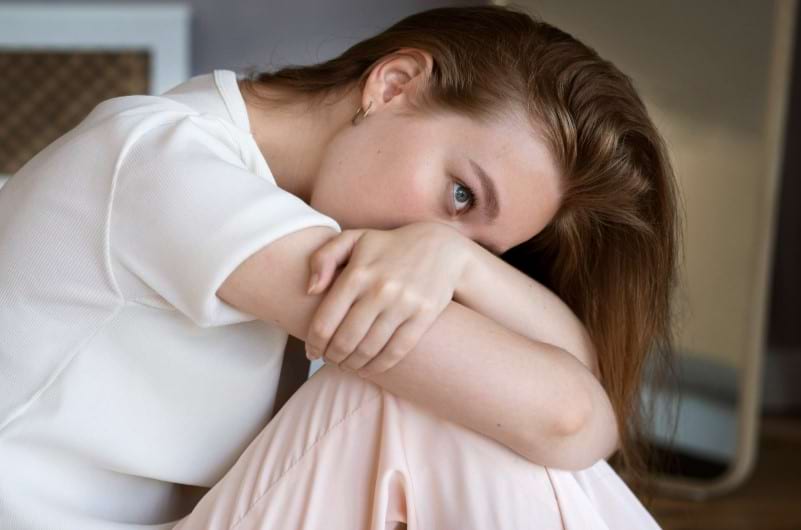Anxiety causes weakness, tension, and sores in your leg muscles, which makes walking difficult. You’ll experience “jelly legs” when you try to move a step forward or even by standing up. Many factors contribute to it, including your worries and fears during an anxiety flare-up, the release of stress hormones impacting your body, and changes in your brain altering how it controls your physical movements. Practicing how to cope with your anxiety can help resolve issues in your walking.
Have you ever experienced getting stuck in your thoughts? Do you hear voices in your head that make your stomach churn or your heart beat faster? It makes you feel hot and vomit?
These are just common symptoms of anxiousness. But, sometimes, anxiety can make you lose your grip on reality and may even cause you to forget how you usually move your body.
How does anxiety occur?
Anxiety is a widespread mental illness in the United States.
According to the Anxiety and Depression Association of America, it affects about 40 million Americans 28 years or older.
We often experience anxiety when we’re stressed or facing our fears, like failing an exam, messing up at work, having a fight with someone, or dealing with an illness.
When something makes us anxious, our body releases a rush of adrenaline that activates our “flight-or-fight response.”
It causes weird sensations in our body, signs that our brain is preparing us to run away or fight our fear or stressor.
Most people can easily overcome anxiety, but for some, it can take over their life affecting their relationships, work, daily life routine, and other aspects of their everyday life.
What causes anxiety?
Being a human being and having the ability to think or imagine the future might be the actual cause of experiencing anxiety.
Many factors can trigger your anxiety symptoms involving genetics, environment, lifestyle, personality traits, and other mental health conditions.
The following are common known triggers that may increase your risk of developing anxiety:
- Stress
- Genetics, like having a family member with anxiety and stress-related disorders
- Personality traits
- Traumas or life events like past injuries, experiencing abuse or losing a loved one
- Racism and other forms of discrimination
- Sex
- Distress because your gender identity differs from the sex assigned at birth (gender dysphoria)
- Specific health issues and medications
- Lifestyle factors like financial worries or addiction to caffeine, drugs, cigarettes, and alcohol
10 ways anxiety affects you
Everybody can experience anxiety which is a normal part of our life. It can affect you both physically and mentally.
Below are common ways in which anxiety can affect you:
1. You lose your focus
When your mind is bombarded with racing thoughts because of anxiety, you lose your focus on doing your daily tasks at school, work, in your home, or even from doing your hobbies.
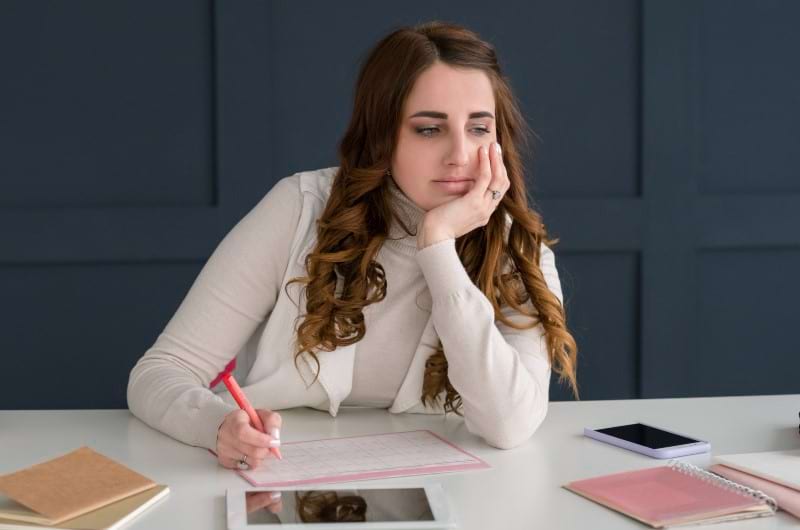
Often, anxiety makes you feel stuck in your past or become immensely fearful of the future, hindering you from living in the present.
2. You become forgetful
Anxiety can cause you to lose focus and make it hard to remember small or big things like an important work meeting, a school assignment, or your friend’s birthday.
3. You lose your self-esteem
Anxiety can impact your self-esteem.
Your fears and worries may make you question your self-worth and ability to handle complicated situations.
4. You get nightmares
When you’re anxious during the day, and even if you sleep through it, the stress, worries, and fears may stay with you overnight.
These cause you to experience nightmares or vivid dreams, which results in disrupted sleep.
Most mental health problems like anxiety can cause difficulty sleeping or staying asleep at night.
5. You experience physical symptoms
Anxiety can take a toll on your overall physical health.
It activates your body to respond to stress which triggers the release of hormones like adrenaline and cortisol.
These hormones can interrupt your immune response and interfere with your bodily functions.
As a result, people suffering from chronic anxiety can quickly get flu, colds, and infections.
The rush of adrenaline can cause rapid heartbeats, shallow breathing, and sweating, affecting your physical movements.
On the other hand, the hormone cortisol affects your immune and muscular systems, which gives you muscle pain, sores, and tension, especially when moving.
6. You get skin conditions
When your body releases more stress hormones, it causes an increase in your skin’s oil production resulting in pimples and acne breakouts.
Moreover, anxiety can worsen skin conditions like eczema, psoriasis, rosacea, and fever blisters. You may also notice some rashes and hives.
7. You have trouble speaking
Your anxious thoughts might distract you from delivering your thoughts correctly and confidently.
Generally, anxiety can change your speech patterns and might cause you to feel like you must only speak with less authority.
8. You practice avoidance
Most people with anxiety avoid people, certain situations or activities due to their fear and worries.
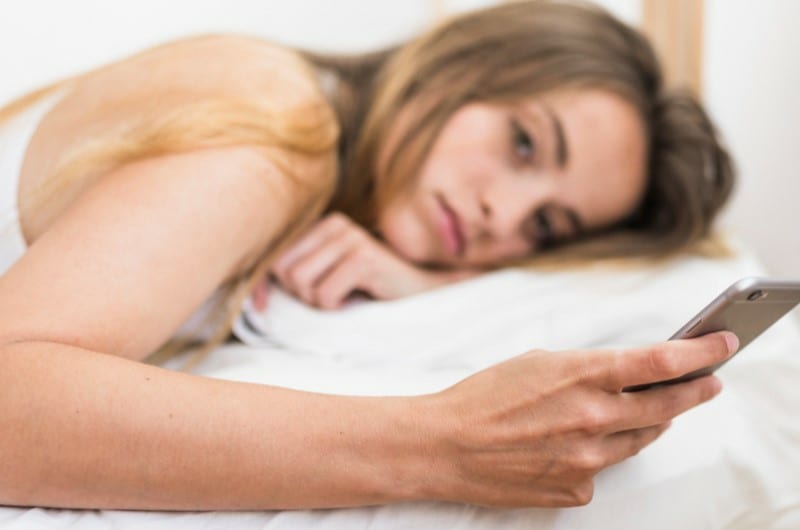
They often use their phones or gadgets to keep themselves distracted and not deal with their anxiety.
9. You feel restless
When your body is in a “flight-or-fight mode,” you find it challenging to stay still.
Your thoughts become unsettling, and you find it hard to sit still.
10. Your other mental health conditions worsen
When you experience chronic anxiety, symptoms of your other mental illness may worsen or flare up.
Such common mental health conditions include depression, obsessive-compulsive disorder (OCD), and post-traumatic stress disorder (PTSD)
How does anxiety impact your walking?
Ever notice weakness in your legs? Or, feeling like having “jelly legs” or “rubber legs”? Anxiety can manifest itself in altering your physical movements like walking.
Anxiety causes feelings of worry and fear which can result in panic attacks. These can impair your ability to walk correctly.
When anxiety triggers the release of stress hormones like adrenaline and cortisol, it can cause physical changes in your body.
These hormones can affect your balance and coordination.
It results in instability, lightheadedness, and muscle tension or weakness, making walking uncomfortable and more complex.
Moreover, anxiety can over-activate the areas in your brain responsible for motion control, balance, and coordination, which interferes with motion control, resulting in difficulties in moving or initiating movements.
People experiencing anxiety and inhibition have more activity in the right side of the brain, causing them to walk in a leftward trajectory.
New research has, for the first time, linked the activation of the brain’s two hemispheres with lateral shifts in people’s walking trajectories.
10 ways to cope with anxiety
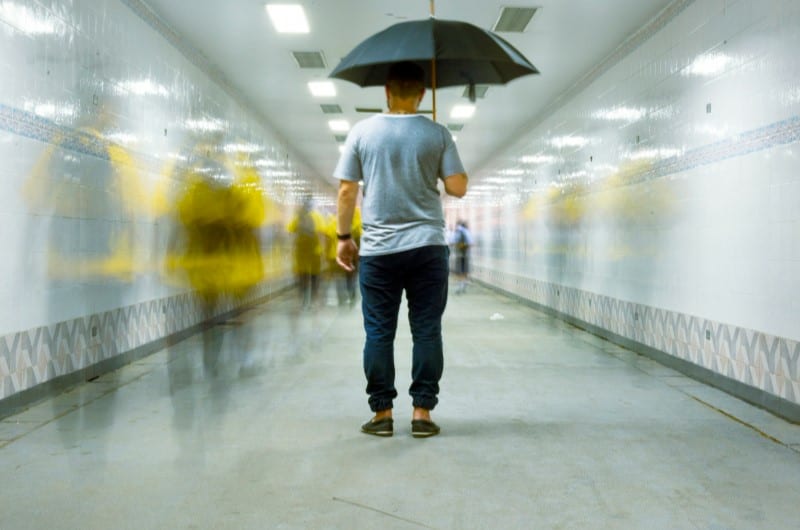
Firstly, you need to know your triggers to cope with and manage your symptoms.
If you can’t identify or list your triggers, taking time off and exploring your feelings is helpful.
Writing down in a journal or talking to a friend can help you understand your triggers.
When you effectively practice coping with your anxiety, you may notice an improvement in your physical movements, including walking.
The following steps below are ways how you can cope with anxiety:
1. Change your focus
Most of the time, negative thoughts can worsen the situation. We fear things that haven’t even happened or have the lowest possibility of occurring.
Practice changing your focus on something you can control.
2. Strengthen your body and mind
What you eat and how much you sleep or move your body may determine your anxiety levels.
Eating a healthy balanced meal rich in carbohydrates, lean meat, fruits, and vegetables may help lower your stress levels and lessen your anxiety flare-ups.
Also, drink plenty of water, limit caffeine intake, reduce sugar, and avoid highly processed foods.
Staying active and regular exercise can enhance your concentration and willpower, reducing anxiety symptoms.
It can help you divert your attention from things that make you anxious.
In addition to eating healthy, balanced meals and staying active, getting enough sleep may significantly reduce your stress levels and anxiety.
Make sleep a priority by limiting screen time before bed, avoiding caffeine, eating large meals at night, and keeping your room dark and cool.
Going to bed at the same time each night helps maintain a schedule.
3. Practice deep breathing and mindfulness
Anxiety often wards off your mind from being in the present moment. It makes you lose your focus on the current time.
Take your time to slow down your thoughts.
Sit down and do some breathing exercises. It will help restore the connection between your body and mind, bringing your attention back to the present.
4. Try aromatherapy and essential oils
Aromatherapy uses natural plant extracts or essential oils, which activate certain areas of your brain to release “feel-good” hormones like serotonin.
It helps ease anxiety symptoms, lowers stress levels, reduces depressive feelings, boosts mood, and improves sleep.
You can try aromatherapy by inhaling it directly, putting it into a diffuser, or applying it to your skin.
Some essential oils may need a carrier oil for dilution before applying them on your skin to avoid skin irritations or allergic reactions.
5. Avoid alcohol and quit smoking
Drinking alcohol and smoking may offer a “quick fix” to your anxiety, but both can worsen your symptoms.
Alcohol is a natural sedative that temporarily removes your anxious feelings.
But, study shows that it can disrupt your natural sleep ability and increase your risk of developing anxiety disorders.
On the other hand, the nicotine and other chemicals in cigarettes may impact how your brain works, triggering anxiety flare-ups.
Start by creating a plan and a support system that can encourage you or provide distractions to quit alcohol and cigarette smoking.
6. Massage your muscles
Anxiety may cause muscle tension, sores, and weakness, making walking uncomfortable.
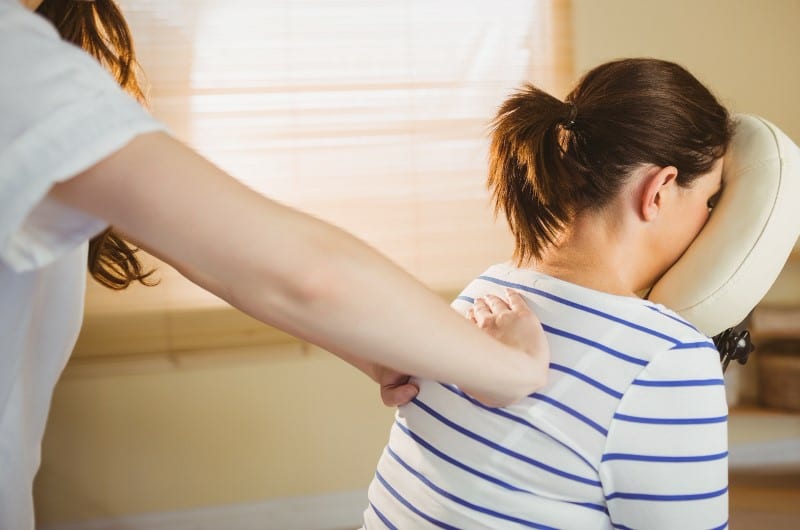
Massage therapy, specifically Swedish massage, helps relax your muscles, stimulate your nerve endings, and increases blood flow, helping your body release stress and anxiety.
Studies show that massage therapy can be an effective alternative and complementary treatment for people doing psychotherapy and anxiety medications.
7. Relax and meditate
Practicing relaxation techniques like yoga, meditation, listening to music, and relaxation training can significantly reduce anxiety.
Moreover, these activities can help you improve your mental health and promotes sleep.
8. Use food supplements
Remember to only use supplements as additions to your primary treatments, not as their substitute.
Always check with your doctor about what’s best for you, as there are still ongoing clinical studies about the effectiveness of food supplements in reducing anxiety symptoms.
Some may also interact with certain medications or affect your pregnancy.
Supplements like vitamin B12, chamomile, passionflower, L-theanine, and omega-3 fatty acids, may improve symptoms of stress, depression, and anxiety.
9. Talk to someone
Some people suffer from social anxiety and find socializing very challenging.
If you’re like this, it’s essential to be patient with yourself and start slowly by finding someone to share things with comfortably, helping you build your confidence in socializing.
Studies show that people who socialize have more resiliency in handling stress, lowering anxiety levels.
Moreover, you become confident that you have someone who got your back when things get tough.
10. Ask your doctor for medications or see a therapist
When your symptoms don’t improve, discuss other options with your doctor. They may prescribe you medicines and lifestyle changes, as mentioned above.
Your doctor might also refer you to a therapist to undergo cognitive behavioral therapy (CBT).

